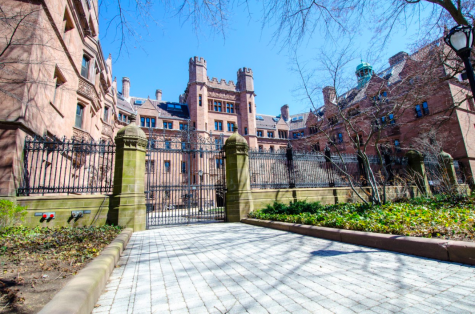All Gender Dorms: Tolerant or Too Far
Phillips Academy Andover and Phillips Exeter Academy, two boarding schools similar to Groton, plan to introduce all-gender dorms in the next school year. Each of these dorms will house around twenty students, all in singles. These dorms are meant to make students who are transgender or identify as non-binary more comfortable in a place where gender defines much of their experience—after all, residence halls have traditionally been founded on gender. John Palfrey, head of school at Andover, told NPR that the “reaction to this announcement has been 100 percent positive,” and a survey at Exeter found that “90 percent of students who responded said they supported the new dorms.” Alumni recall times when LGBT students were hazed and bullied and look to all-gender dorms to be more welcoming.
The question naturally follows: would this work at Groton? There seems to be a supportive student base from both girls and boys. Daisy Fey ‘18 thinks that “it would be fun,” and Michael Senko ‘18 expects that “the bathroom situation would be a little awkward at first, but after a little while everyone would calm down.” He also brings up the fact that an overwhelming majority of Groton students plan to go to college, where many dorms house all genders. Is it not a good thing, he then reasons, to prepare students for the next step in their lives? Olivia Potter ‘18 argues that all-gender dorms would also “improve gender relations at Groton” and create a “safe space for non-binary students.”
While introducing all-gender dorms would be a positive step for Groton, the administration would have to consider carefully the best way to integrate these dorms on campus. Everyone who would want to live in an all-gender dorm should have that opportunity available, but everyone else should be free to choose the preexisting single-gender dorms. Take the perspective of Richie Santry ‘18: while he professes to have no issue with all-gender dormitories and thinks that they would be “a great addition to Groton,” when asked whether he would live in one, he said that he would prefer to stay in an all-boys dorm. He named communal bathrooms as a primary concern, and also cited the camaraderie and comfort developed between a dorm of boys over a year.
In a perfect world, girls and boys would not treat each other differently based on gender, but the truth is that that’s what happens. Girls confide things in each other in girls’ dorms that they don’t share with boys, and boys do the same in their own places of residence. Creating a dorm with different genders, while a perfectly valid solution for some students, risks that the friendship between a group made entirely of boys or girls will be somewhat diminished. Some students wouldn’t mind that, but for others, that bonding is what makes Groton worthwhile.
But if there are people at Exeter and Andover who feel more comfortable in an all-gender dorm, there may well be people at Groton who would feel the same way, and those people should not be forced into a living situation that makes them uncomfortable. The administration should look into whether there is need for an all-gender dorm on campus: are there students who would feel more comfortable living in one already on campus? If that constituency exists (as it very well may), it is not only the School’s duty but its obligation to accommodate those students. But unless there is a compelling reason, though, dorm life needs no change from the status quo.
Nina is from New York City and entered Groton in second form. Though she has always enjoyed writing, this is her first year writing for The Circle...










